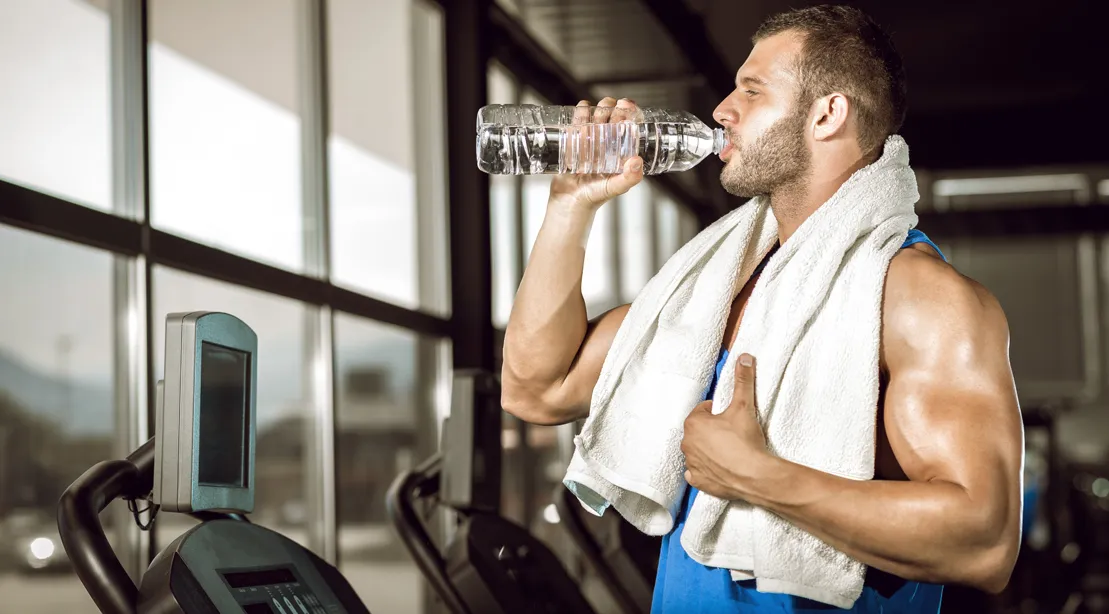Hydration is essential to the wellbeing of any healthy body. It flushes toxins out, transports nutrients to cells, improves blood flow and minimizes post-exercise fatigue.
Adequate hydration helps the body regulate its body temperature by sweating efficiently and evaporating excess heat via sweat glands and sweating pores. Stay well-hydrated throughout your day and during physical activity by drinking plenty of water throughout the day and during physical activities; for added variety try sipping on fruit-infused waters made from vegetables, tea leaves or broth broth!
Water
Hydration is crucial for optimal performance during exercise. How you hydrate can depend on your personal physiology and activity levels; generally speaking, aim to consume half your bodyweight in ounces during an activity session as a guideline – an appropriate result would be light yellow urine that indicates proper hydration levels.
Water is an economical, easy and accessible fluid to consume during and post exercise. Add electrolytes such as salt to improve muscle function and prevent cramping.
Beginning early each day, aim to be adequately hydrated when beginning exercise. Assess your hydration status using the 1-to-9 thirst rating system; if thirsty drink 16-24 ounces two hours before exercise and 8 more 15 minutes prior to starting your session. As for during exercise, aim to drink 16-32 ounces per hour depending on weather and sweat rate – avoid caffeinated or carbonated drinks which have diuretic effects which could lead to dehydration.
Sports Drinks
Sports drinks are commercially produced bottled beverages designed to rehydrate and replenish electrolytes during exercise or athletic activity. These drinks typically consist of water mixed with flavorings, colors, electrolytes (primarily salt) and sugar for energy replenishment.
Rayven Nairn, M.S., R.D. is the associate director of nutrition for Johns Hopkins University Student Health and Wellness Center and advises her patients that water, green tea, milk and chocolate milk all provide equal hydrating effects as sports drinks. To stay hydrated during a workout or sporting event she recommends setting an alarm on your phone to remind you to sip regularly on these fluids.
She suggests athletes assess their sweat rate to better assess if a sports drink is required or not, which will allow them to determine how many fluid and electrolytes will be lost during exercise sessions and determine whether a beverage may help offset those losses or not. “By knowing your sweat rate, it becomes easy to calculate how many ounces of fluid and electrolytes will be lost during an activity session and assess if you require supplementing with electrolytes or drinking sports beverages to make up for those losses,” says Cannon.
Fruit
Although most people rely on water as their go-to hydratation source, fruit and other beverages can also provide essential hydration needs. Watermelons boast 92% water per serving while providing an ample supply of vitamin C (26% of your recommended daily value), with each medium-sized slice providing 11% and 4% respectively of these essential nutrient values; strawberries provide another great hydration boost with each medium slice delivering 11% for Vitamin C and 4% for potassium respectively; tomatoes boast 84% water per serving in addition to providing vitamin A benefits!
Dietitians recommend eating foods rich in water content, like strawberries, cantaloupe and lettuce. Many vegetables such as cooked spinach and carrots contain over 80% water content, making them perfect snacks or additions to salads and soups. To add an extra flavor boost, pair these veggies with dips or spreads for maximum enjoyment!
Vegetables
Dehydration during exercise can adversely impact performance, increasing heart rate, blood pressure and body temperature while diminishing muscle strength and endurance. Furthermore, fatigued and irritable feelings may develop as a result.
Athletes must pay close attention to their thirst cues as their hydration needs can vary depending on activity level and environmental conditions. Regular athletes should plan to consume 16-24 ounces of fluid for every pound lost through sweating.
Vegetables are an excellent source of water, helping regulate temperature and providing energy for exercising muscles. A mid-size tomato contains roughly half a cup of water and contains vitamins A and C. Vegetable salads also provide extra fiber benefits.
Fruits and vegetables provide many essential vitamins and nutrients. Try including berries, melons, oranges and low-fat yogurt or raisins in your diet as nutritious sweet treats.






